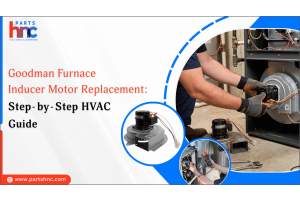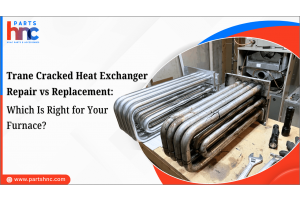The Future of Cooling: Oil-Free Chillers in 2024
As global temperatures rise and the demand for sustainable cooling solutions increases, the spotlight shines brightly on oil-free chillers. This innovative technology is transforming the HVAC landscape, offering significant advantages in energy efficiency, environmental impact, and overall performance. In 2024, businesses and homeowners alike are looking to invest in oil-free chillers for their cooling needs. This article explores the workings of oil-free chillers, their benefits, notable brands implementing this technology, and the models leading the charge.
Table of Contents
Understanding Oil-Free Chillers: A Technological Leap
Oil-free chillers are advanced cooling systems that eliminate the need for oil in their compressors, a crucial part of traditional chillers. Instead of using oil for lubrication and sealing, these chillers leverage magnetic bearings and air or refrigerant for cooling and operation. This innovation not only enhances energy efficiency but also reduces maintenance and environmental impact.
Key Components of Oil-Free Chillers:
- Magnetic Bearings: Oil-free chillers utilize magnetic bearings, which suspend the compressor shaft in a magnetic field. This eliminates the need for lubricating oil, as there is no physical contact between moving parts.
- Centrifugal Compressors: Unlike conventional screw or reciprocating compressors, oil-free chillers use centrifugal compressors, which operate at high speeds and improve efficiency.
- Variable Speed Drives (VSD): These allow the compressor to adjust its speed according to cooling demand, optimizing energy usage and lowering operational costs.
With these components, oil-free chillers can offer a host of benefits that make them a preferred option in modern industrial and commercial settings.
The Advantages of Oil-Free Chillers
Given below are the advantages of oil-free chillers
- Enhanced Energy Efficiency: Oil-free chillers are designed for optimal energy efficiency. By eliminating friction losses associated with traditional oil-lubricated compressors, these chillers can achieve higher performance with lower energy consumption. Many models boast efficiency ratings that meet or exceed the stringent standards set by organizations like the U.S. Department of Energy.
- Reduced Environmental Impact: The cooling industry is under increasing pressure to reduce its carbon footprint. Oil-free chillers contribute to this goal by using refrigerants with lower global warming potential (GWP) and by minimizing oil waste. As regulations surrounding refrigerants become stricter, adopting oil-free technology can help businesses comply with environmental standards.
- Lower Maintenance Costs: One of the significant advantages of oil-free chillers is the reduction in maintenance costs. Without oil, there is less risk of oil leaks and related issues. The magnetic bearing systems require less frequent servicing, translating to lower overall maintenance expenses and less downtime for equipment.
- Improved Reliability and Longevity: The absence of oil means less wear and tear on moving parts, enhancing the reliability and lifespan of the chiller. Oil-free chillers can operate effectively for longer periods, which is particularly beneficial in critical applications such as data centers and pharmaceutical manufacturing.
Leading Brands and Models in 2024
As the demand for oil-free chillers grows, several leading brands are at the forefront of this technology. Here are some notable manufacturers and their flagship models:
Trane: Series R® Oil-Free Chillers
Trane’s Series R® oil-free chillers are engineered for maximum efficiency and sustainability. Equipped with Trane’s proprietary technology, these chillers are designed to meet a wide range of cooling needs, from large commercial buildings to industrial applications. The Series R® models can achieve EERs (Energy Efficiency Ratios) exceeding 0.80 and have a GWP of less than 1, making them an eco-friendly choice.
Carrier: AquaEdge® 19DV Chiller
Carrier’s AquaEdge® 19DV is a high-performance, oil-free chiller that integrates advanced controls and a magnetic bearing compressor. This model is particularly renowned for its low operational costs and eco-friendly refrigerant options. The AquaEdge® series delivers impressive energy efficiency, with EERs reaching up to 0.90, making it a popular choice for environmentally conscious businesses.
Mitsubishi Electric: E-Series Chillers
Mitsubishi Electric has introduced the E-Series of oil-free chillers, featuring a unique design that combines high efficiency with a compact footprint. The E-Series utilizes advanced inverter technology, enabling precise temperature control and reduced energy consumption. These chillers are perfect for commercial applications where space is limited but performance cannot be compromised.
Daikin: Magnitude™ Oil-Free Chiller
Daikin’s Magnitude™ oil-free chiller stands out for its innovative design and exceptional energy efficiency. This model employs a variable-speed drive and magnetic bearing technology, ensuring quiet operation and minimal energy usage. The Magnitude™ chiller is ideal for large-scale applications, offering customizable solutions to fit various cooling requirements.
York: YZ Magnetic Bearing Chiller
The York YZ chiller is another leader in the oil-free market, featuring an advanced magnetic bearing design. This chiller is engineered for low noise and high reliability, making it suitable for sensitive environments such as hospitals and laboratories. With EER ratings up to 0.90, the YZ chiller is a top choice for those seeking energy-efficient cooling solutions.
Looking to upgrade your cooling system with cutting-edge technology? At PartsHnC, you can find a wide range of HVAC parts, including high-efficiency compressors, advanced expansion valves, and durable evaporator coils. Our selection ensures that you have everything you need to implement oil-free chillers effectively. Transform your cooling efficiency today with our premium components!
The Future of Cooling: Trends and Innovations
As we look ahead, the oil-free chiller market is set to evolve in response to technological advancements and environmental demands. Several trends are shaping the future of cooling systems.
Smart Technologies and IoT Integration
The integration of smart technologies and IoT capabilities into oil-free chillers is becoming increasingly common. These innovations enable real-time monitoring of performance metrics, predictive maintenance alerts, and enhanced control over cooling operations. By utilizing connected systems, businesses can optimize energy usage and respond swiftly to operational changes, ensuring peak performance and reduced costs.
Check out: Seamless Integration: The Future of Smart HVAC Powered by IoT
Enhanced Sustainability Initiatives
With growing awareness of environmental issues, the demand for sustainable cooling solutions will continue to rise. Oil-free chillers, featuring lower GWP refrigerants and energy-efficient designs, are poised to play a significant role in the push for greener technologies. Manufacturers are increasingly focused on reducing the environmental impact of their products, aligning with global sustainability goals and regulatory requirements.
Modular Designs
The future will likely see more modular designs in oil-free chillers, allowing for easier scalability and adaptability to varying cooling demands. This flexibility is essential for businesses that require customized solutions based on specific operational needs. Modular systems can be expanded or reconfigured as necessary, offering a versatile approach to meet the changing requirements of industries such as healthcare, technology, and manufacturing.
Conclusion: Embracing the Future of Cooling
The power of oil-free chillers represents a significant leap forward in cooling technology. With their numerous benefits, including enhanced energy efficiency, reduced environmental impact, and lower maintenance costs, these chillers are set to become a staple in various industries. As more brands invest in this technology, the future of cooling looks promising. Embracing oil-free chillers is not only a strategic business decision but also a vital step towards a sustainable and efficient future.
In 2024 and beyond, businesses that prioritize energy efficiency and environmental responsibility will find oil-free chillers to be an indispensable part of their operations.
FAQs
What industries benefit most from oil-free chillers?
Oil-free chillers are particularly beneficial in industries like pharmaceuticals, data centers, and food processing, where temperature control and cleanliness are critical. Their efficiency and reliability make them ideal for environments requiring stringent hygiene standards.
How do oil-free chillers compare in cost to traditional chillers?
While the initial investment for oil-free chillers may be higher, they typically result in lower operating and maintenance costs over time. Their energy efficiency and reduced downtime can lead to significant long-term savings.
Are oil-free chillers noisy during operation?
Oil-free chillers operate more quietly than traditional chillers due to their magnetic bearing technology, which minimizes mechanical noise. This feature makes them suitable for noise-sensitive environments, such as hospitals and libraries.
Can oil-free chillers use alternative refrigerants?
Yes, many oil-free chillers are designed to accommodate refrigerants with lower global warming potential (GWP). This flexibility helps businesses meet environmental regulations and sustainability goals.
What is the lifespan of an oil-free chiller compared to a traditional chiller?
Oil-free chillers generally have a longer lifespan than traditional chillers due to reduced wear and tear from the absence of oil. With proper maintenance, they can often exceed 20 years of reliable operation.
 Loyalty Program
Loyalty Program









